Consult Medical Oncologists Online (79 doctors)

Dr. Vishwanath S
Medical Oncologist
11 Years • MBBS, MD, DM (Med. Onco.) Fellowship at MD Anderson Cancer Center
Bengaluru
Apollo Hospitals Bannerghatta Road, Bengaluru

Dr Shaikat Gupta Director Surgical Onco
Surgical Oncologist
34 Years • MBBS (University Gold Medalist), MS, FRCSEd
Kolkata
Apollo Multispeciality Hospitals , Kolkata, Kolkata
50+ recommendations
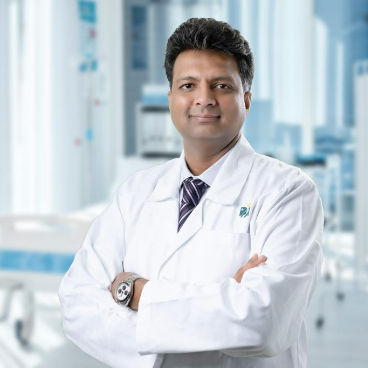
Dr. Vijay Agarwal
Medical Oncologist
18 Years • MBBS, MD, MRCP (UK), PHD (UK), CCT (UK) MEDICAL ONCOLOGY)
Bengaluru
Apollo Hospitals Bannerghatta Road, Bengaluru
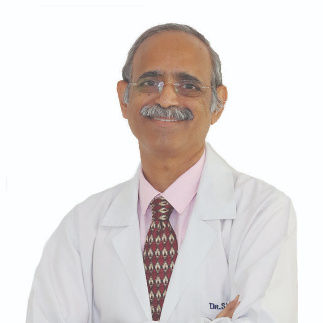
Dr. S V S S Prasad
Medical Oncologist
26 Years • MBBS ; MD (Pediatrics), DM (Med. Onco.),BMT
Hyderabad
Apollo Hospitals Jubilee Hills, Hyderabad
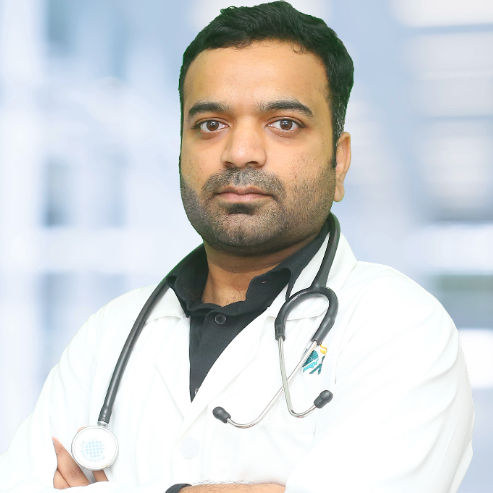
Dr. A Goutham Rao
Medical Oncologist
5 Years • MBBS, MD, Dr NB MEDICAL ONCOLOGY,ECMO
Hyderguda
Apollo Hospitals Hyderguda, Hyderguda

Dr. Gopal Kumar
Head, Neck and Thyroid Cancer Surgeon
15 Years • MBBS, MS , FARHNS ( Seoul, South Korea ), FGOLF ( MSKCC, New York )
New Delhi
Apollo Hospitals Indraprastha, New Delhi
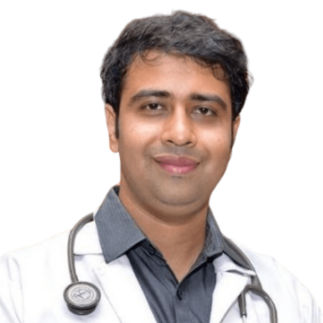
Dr. Prateek Tiwari
Medical Oncologist
14 Years • MBBS, MD, DM (Medical Oncology), DNB (Medical Oncology), ESMO ( European Society for Medical Oncology )
Bhopal
Apollo Sage Hospitals, Bhopal
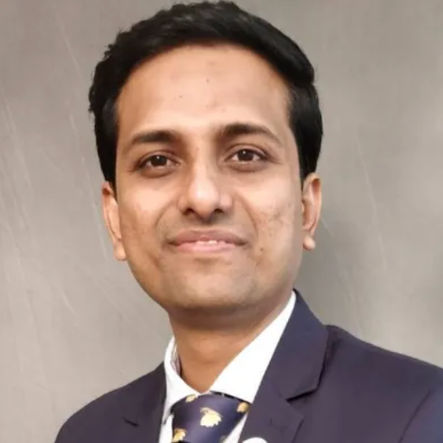
Dr Suhas Vilasrao Aagre
Medical Oncologist
9 Years • 2013 -July 2016: D.M Medical Oncology (Gujarat Cancer & Research Institute, B.J medical college, Ahmedabad.) (University – Gujarat University) 2009- 2012: M.D. Internal Medicine [Pt. J.N.M. Medical College, Raipur (C.G.)]. (University –AYUSH University of Health Sciences) 2001- 2007: M.B.B.S (Government medical college, Aurangabad) (University – Maharashtra University of Health Sciences) 1999-2001: H.S.C ( Rajarshi Shahu College, Latur, Maharashtra)
Mumbai
Apollo Hospitals CBD Belapur, Mumbai
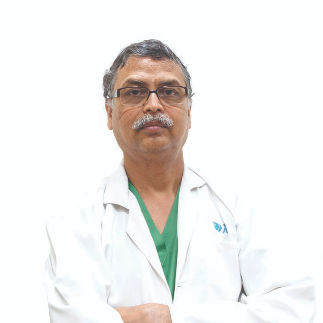
Dr. Praveen Kumar Garg
Surgical Oncologist
26 Years • MBBS, M.S.(Gen.Surg.), M.Ch.(OncoSurg.)
New Delhi
Apollo Hospitals Indraprastha, New Delhi
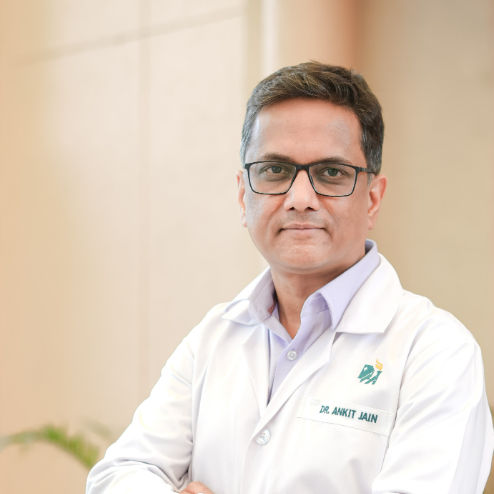
Dr Ankit Jain
Medical Oncologist
20 Years • MBBS, (MAMC Delhi), MRCP Oncology (London), MRCP Medicine (London), MSC Oncology(UK) CCT(UK)
New Delhi
Apollo Hospitals Indraprastha, New Delhi
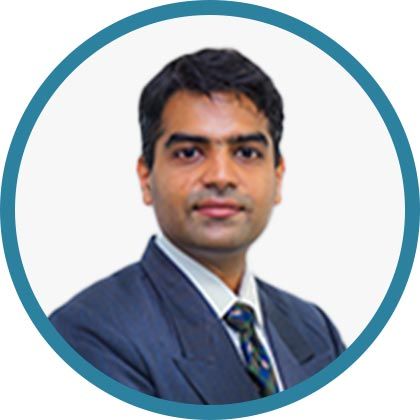
Dr. N. Aditya Murali
Medical Oncologist
10 Years • MBBS, MD (Gen Med), DM (Med Onco – Adyar Cancer Institute) DNB (Med Onco), MRCP – SCE (Med Onco)
Bengaluru
Apollo Hospitals Sheshadripuram, Bengaluru
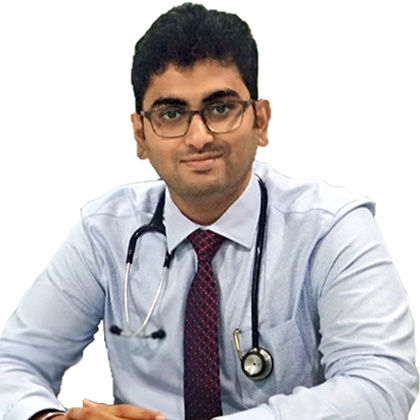
Dr. Pushpak Chirmade
Medical Oncologist
10 Years • MBBS, MD (INTERNAL MEDICINE), DM (MEDICAL ONCOLOGY)
Mumbai
Dr. Pushpak Chirmade Cancer Care, Mumbai
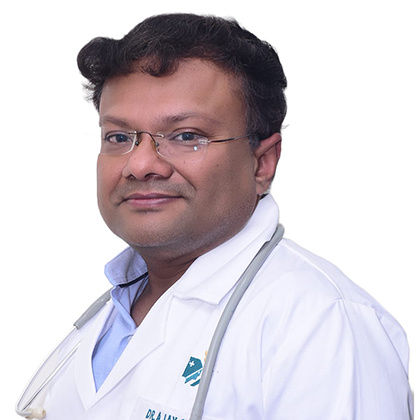
Dr. Ajay Gupta
Medical Oncologist
15 Years • MBBS (MAMC), MD (Medicine) , DM (AIIMS-Medical Oncology), FRACP (Australia), CCST (UK)
New Delhi
Apollo Hospitals Indraprastha, New Delhi
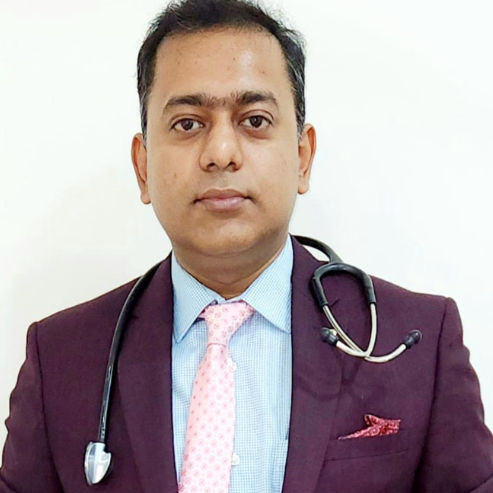
Dr. Sanchayan Mandal
Oncologist
17 Years • MBBS, DrNB( MEDICAL ONCOLOGY), DNB (RADIOTHERAPY),ECMO. PDCR. ASCO
Kolkata
Dr. Sanchayan Mandal Oncology Clinic, Kolkata

Dr. Srinivas Chakravarthy Gummaraju
Medical Oncologist
21 Years • MD Med(USA), DM Onc(USA), DM Heme(USA)
Hyderabad
Apollo Hospitals Jubilee Hills, Hyderabad
Medical Oncology
Booking an appointment with a top medical oncologist is now easier than ever with Apollo 24|7. Our experienced medical oncology doctors provide comprehensive care for various types of cancer. You can conveniently schedule your online or in-person consultation with a trusted medical oncologist at Apollo 24|7. Our specialist cancer doctors will help you plan your medical care, treatments, and other key lifestyle changes to manage your condition effectively. With a wide range of appointment slots available, you can choose a time that suits you best and receive the expert care you need.
What is Medical Oncology?
Medical oncology is a speciality of medicine focused on the diagnosis, treatment, and management of cancer. Medical oncologists use various forms of treatment such as chemotherapy, hormonal therapy, biological therapy, and targeted therapy to treat cancer at various stages. The speciality plays a critical role in the multidisciplinary approach to cancer care, coordinating treatment plans and managing the overall health of patients undergoing cancer treatment.
The relevance of medical oncology in healthcare is profound as it contributes significantly to cancer care, improving survival rates and quality of life for patients. This speciality also engages in clinical research, seeking new and effective treatments to continue advancing the field of cancer therapy.
Who is a Medical Oncologist?
A medical oncologist is a physician who specialises in treating cancer using chemotherapy, hormonal therapies, biological therapies, and other targeted treatments. They require extensive training, beginning with a medical degree, followed by residency and fellowship in oncology. Medical oncologists are experts in managing side effects and complications associated with cancer treatments and play a crucial role in the long-term monitoring and follow-up of cancer patients.
Their expertise extends to understanding the complex nature of cancer development and progression, enabling them to tailor treatment plans that best suit individual patient needs and conditions. This specialisation allows them to manage various cancers effectively and to provide compassionate care during a patient’s cancer journey.
What Does a Medical Oncologist Do?
A medical oncologist specialises in the treatment and management of cancer through medication and systemic therapies. Their primary role is to formulate and execute comprehensive treatment plans tailored to each patient’s specific type of cancer and stage of progression.
Diagnosis and Assessment: Medical oncologists often confirm cancer diagnoses and stage the disease using a variety of diagnostic tests. This includes interpreting laboratory results, biopsies, and imaging studies to understand the extent and specifics of the cancer.
Treatment Planning: They develop personalised treatment plans based on the cancer type, stage, and the patient's overall health. Treatment may include chemotherapy, immunotherapy, hormonal therapy, or targeted therapy, among other methods.
Administration of Therapy: Medical oncologists oversee the administration of treatments, adjusting doses and schedules based on the patient’s response and side effects.
Patient Monitoring: Regular monitoring of the patient’s progress is essential. This involves evaluating the effectiveness of the treatment through follow-up tests, monitoring for side effects, and making necessary adjustments to the therapy.
Supportive Care: Providing support and symptom management for side effects of cancer and its treatment is also a key part of their role. This includes prescribing medication to help with side effects, dietary advice, and psychological support.
Research and Trials: Many medical oncologists are involved in clinical trials and research, seeking new and more effective ways to treat cancer.
Education and Consultation: They educate patients and their families about treatment options, what to expect during treatment, and overall disease management.
What are the Other Sub-specialities of Medical Oncology?
Medical oncology encompasses several sub-specialities, each focusing on different aspects of cancer treatment and patient care. These sub-specialities cater to specific patient demographics, types of cancer, or treatment methodologies:
Paediatric Oncology: Specialises in diagnosing and treating cancers in children, addressing the unique challenges and needs of younger patients.
Geriatric Oncology: Focuses on cancer treatment for the elderly, considering the specific health concerns and treatment responses of older adults.
Haematologic Oncology: Also known as hemat-oncology, this sub-speciality deals with cancers of the blood, such as leukaemia, lymphoma, and myeloma. Specialists in this field are often referred to as chemotherapists.
Immuno-Oncology: Involves the study and application of treatments that use the body's immune system to fight cancer, such as checkpoint inhibitors and CAR T-cell therapies.
Targeted Therapy: This is a form of cancer treatment that targets the specific genes, proteins, or the environment that contributes to cancer growth and survival, often resulting in fewer side effects compared to traditional chemotherapy.
Translational Oncology: Focuses on turning scientific research into practical applications to improve patient outcomes. This field often bridges the gap between laboratory research and patient care in clinical settings.
Palliative Care in Oncology: Specialises in improving the quality of life for patients with advanced cancer, managing symptoms, and providing support to patients and their families.
Oncologic Emergency Medicine: Deals with the immediate management of emergencies resulting from cancer or its treatment, such as spinal cord compression or neutropenic sepsis.
Clinical Research and Trials: This area focuses on developing and testing new cancer treatments through organised clinical trials, essential for advancing treatment options.
Oncogenetics: Involves studying the genetic basis of cancer and using this information to develop targeted therapies or preventative strategies.
Each of these sub-specialities plays a critical role in the comprehensive care of cancer patients. Specialists in these fields, including cancer specialists and cancer doctors, work collaboratively to tailor treatment plans that best meet the individual needs of their patients, ensuring the highest standards of care are maintained across all aspects of oncology.
What are the Medical Oncology Examinations or Tests Performed by the Medical Oncologist?
Medical oncologists perform a variety of diagnostic tests and examinations to accurately diagnose, stage, and monitor cancer. These tests are crucial for determining the most effective treatment plan for each patient.
1.Biopsies: A key diagnostic procedure where tissue samples are collected from suspected cancer areas and examined under a microscope to check for cancer cells.
2.Blood Tests: Common tests include complete blood counts (CBC), tumour markers, and biochemical profiles to assess general health and detect abnormalities that might indicate cancer.
3.Imaging Studies: These include:
X-rays: Basic imaging used to look for abnormal masses.
Computed Tomography (CT) Scans: Provides detailed cross-sectional images of body organs to detect tumours and assess the spread of cancer.
Magnetic Resonance Imaging (MRI): Offers detailed images of soft tissues in the body, used to precisely locate tumours and assess their size.
Positron Emission Tomography (PET) Scans: Often combined with a CT scan (PET-CT), this test helps to identify active tumour cells in the body.
4.Endoscopic Examinations: Allows direct visualisation of the internal parts of the body using an endoscope. This is used to assess cancer in organs like the stomach, colon, and bladder.
5.Genetic Testing: Analyses DNA to identify inherited cancer risks and to tailor targeted therapies based on genetic mutations.
6.Bone Scans: Detects bone changes or abnormalities associated with certain cancers.
Each test provides vital information that helps the medical oncologist to formulate a comprehensive treatment strategy tailored to the patient's specific condition. To manage or diagnose a cancer condition effectively, it's advisable to book medical oncologist who can guide through these tests and their implications, ensuring optimal care and treatment outcomes.
What are the Common Conditions & Diseases that Medical Oncologists Treat?
Medical oncologists are specialists who manage a variety of cancers, each requiring tailored treatment strategies. Here are the top 15 conditions they commonly treat:
Breast Cancer: A malignancy of the breast tissues, often noticeable by a lump or changes in breast shape.
Lung Cancer: Characterised by uncontrolled cell growth in lung tissue, often due to smoking.
Prostate Cancer: A common cancer in men, affecting the prostate gland.
Colorectal Cancer: Cancer of the colon or rectum, linked to age, lifestyle, and diet.
Melanoma: A serious form of skin cancer that develops from pigment-containing cells known as melanocytes.
Leukaemia: A type of cancer of the blood and bone marrow, characterised by the ineffective production of blood cells.
Lymphoma: Cancer that begins in the lymphocytes of the immune system and presents as solid tumours of lymphoid cells.
Ovarian Cancer: A cancer originating in the ovaries, often undetected until it has spread within the pelvis and abdomen.
Pancreatic Cancer: A malignant tumour within the pancreas which often goes undetected until advanced stages.
Kidney Cancer: Includes renal cell carcinoma, the most common type of kidney cancer in adults.
Bladder Cancer: Features the development of malignant cells within the urinary bladder.
Head and Neck Cancers: Includes cancers of the mouth, throat, and larynx.
Thyroid Cancer: A cancer that emerges from the thyroid gland, noticeable through nodules in the neck.
Endometrial Cancer: Cancer of the lining of the uterus, often detected through abnormal bleeding.
Oesophageal Cancer: Cancer that occurs in the oesophagus, characterised by difficulty swallowing and weight loss.
These conditions highlight the broad scope of medical oncology, encompassing various organs and requiring comprehensive treatment approaches.
Reasons to See a Medical Oncologist
Consulting a medical oncologist is crucial for anyone diagnosed with cancer or showing symptoms suggestive of the disease. Here are the primary reasons for seeking their expertise:
Diagnosis Confirmation: To confirm a cancer diagnosis through detailed assessments and testing.
Treatment Planning: To develop a personalised treatment plan that may include chemotherapy, radiation, and other therapies.
Management of Symptoms and Side Effects: To manage the physical symptoms of cancer and side effects of its treatment.
Ongoing Monitoring and Adjustments: To monitor the effectiveness of treatment and make necessary adjustments.
Advanced Therapies and Clinical Trials: To gain access to the latest treatments and clinical trials not available elsewhere.
For those unable to visit in person, an online medical oncologist consultation offers a flexible option to discuss concerns and explore treatment possibilities.
What Types of Procedures do Medical Oncologists Perform?
Medical oncologists are specialists in diagnosing and treating cancer through a variety of therapies and procedures. These interventions are crucial in managing the disease and improving patient outcomes. Below, we categorise their procedures into Top Therapies and Top Surgeries.
Top Therapies in Medical Oncology
Chemotherapy – Use of powerful drugs to kill or slow the growth of cancer cells.
Immunotherapy – Boosting the body’s immune system to fight cancer.
Targeted Therapy – Use of drugs that target specific molecules involved in cancer growth.
Hormonal Therapy – Treating cancers like breast or prostate by modifying hormone levels.
Radiation Therapy Coordination – Collaborating with radiologists to deliver precise radiation treatment.
Palliative Care – Managing symptoms and improving quality of life in advanced cancer stages.
Bone Marrow Stimulation – Stimulating bone marrow to produce healthy blood cells.
Genomic Testing – Analysing DNA to personalise cancer treatment plans.
Top Surgeries in Medical Oncology
Biopsy Procedures – Removing tissue samples for diagnosis.
Insertion of Port or Catheter – Facilitating long-term medication delivery.
Tumour Resection Assistance – Supporting surgeons during tumour removal.
Pleural or Peritoneal Drainage – Removing excess fluid from cancer-affected areas.
Debulking Surgery Collaboration – Reducing tumour size before further treatment.
Sentinel Lymph Node Biopsy – Identifying spread to lymph nodes.
Palliative Surgical Interventions – Relieving symptoms caused by cancer complications.
Consultation costs and medical oncologist fee depend on the complexity of the procedure and the treatment plan.
Why Choose an Apollo 24|7 Medical Oncologist?
Choosing a medical oncologist at Apollo 24|7 offers several advantages for cancer patients seeking high-quality, comprehensive care. Our medical oncologists are highly qualified, with extensive experience in managing various types of cancer using the latest evidence-based treatments. They provide personalised care, tailoring treatment plans to each patient's specific needs, preferences, and goals.
At Apollo 24|7, patients have access to advanced treatment options, including modern therapies and clinical trials, ensuring they receive the most effective care available. Our user-friendly platform allows patients to easily book appointments online or through the Apollo 24|7 app, ensuring convenient access to top-tier medical oncology services.
With a holistic approach to cancer care, our medical oncologists collaborate with a multidisciplinary team to address all aspects of a patient's well-being, from diagnosis and treatment to survivorship and supportive care.
What to Expect When Visiting a Medical Oncologist?
Visiting a medical oncologist is a critical step for individuals diagnosed with cancer or suspected to have the disease. These specialists provide comprehensive care tailored to each patient's unique condition.
Initial Consultation: Expect a thorough review of your medical history, including discussions about any symptoms, prior health issues, and family medical history.
Diagnostic Testing: You may undergo various tests, such as blood tests, biopsies, and imaging studies, to determine the type and extent of cancer.
Treatment Planning: The oncologist will discuss potential treatment options, including chemotherapy, radiation, and other targeted therapies based on the diagnosis.
Follow-Up Schedule: Regular follow-up visits will be planned to monitor your response to treatment and make adjustments as needed.
Patients looking to find specialised care should consider reading medical oncologist reviews to choose a reputable specialist. If location is a concern, searching for a “medical oncologist near me” can help identify conveniently located experts.
How Can I Get an Appointment With a Medical Oncologist?
To get an appointment with a medical oncologist at Apollo 24|7, you can follow these simple steps:
Book Online: Visit the Apollo 24|7 website and navigate to the "Book Appointment" section. Select "Medical Oncology" as the speciality and choose your preferred medical oncologist from the list of available doctors. Select a convenient date and time for your appointment and provide the necessary personal and payment details to confirm your booking.
Use the Apollo 24|7 App: Download the Apollo 24|7 app on your smartphone and log in or create a new account. Tap on the "Book Appointment" option and select "Medical Oncology" as the speciality. Choose your preferred medical oncologist, date, and time for your appointment, and complete the booking process by providing the required information.
Call the Apollo 24|7 Helpline: If you prefer to book your appointment over the phone, you can call the Apollo 24|7 helpline. Our customer support team will assist you in selecting a medical oncologist and scheduling your appointment at a convenient time and location.
Referral from Another Doctor: If another doctor has referred you to a medical oncologist at Apollo 24|7, you can contact our helpline or use the online booking system to schedule your appointment, mentioning the referral details.
Medical Oncologists in Other Top Cities
- •Best Medical Oncologists in Bengaluru
- •Best Medical Oncologists in Chennai
- •Best Medical Oncologists in Kolkata
- •Best Medical Oncologists in Mumbai
- •Best Medical Oncologists in New Delhi
- •Best Medical Oncologists in Hyderabad
- •Best Medical Oncologists in Ahmedabad
- •Best Medical Oncologists in Banglore
- •Best Medical Oncologists in Bhubaneswar
- •Best Medical Oncologists in Guwahati
- •Best Medical Oncologists in Madurai
- •Best Medical Oncologists in Angamaly
- •Best Medical Oncologists in Bhopal
- •Best Medical Oncologists in Bilaspur
- •Best Medical Oncologists in Chinagadila
- •Best Medical Oncologists in Hyderguda
- •Best Medical Oncologists in Indore
- •Best Medical Oncologists in Khammam
- •Best Medical Oncologists in Lucknow
- •Best Medical Oncologists in Mysuru
Doctors in Top cities
- •Top Doctors in Hyderabad
- •Top Doctors in Bengaluru
- •Top Doctors in Chennai
- •Top Doctors in Kolkata
- •Top Doctors in East Godavari
- •Top Doctors in Mumbai
- •Top Doctors in New Delhi
- •Top Doctors in Bangalore
- •Top Doctors in Pune
- •Top Doctors in Delhi
- •Top Doctors in Gurugram
- •Top Doctors in Noida
- •Top Doctors in Ahmedabad
- •Top Doctors in Lucknow
- •Top Doctors in Ghaziabad
- •Top Doctors in Visakhapatnam
- •Top Doctors in Guwahati
- •Top Doctors in Madurai
- •Top Doctors in Bhubaneswar
- •Top Doctors in Vijayawada
Related Services
- •Doctors for CT Scan Abdomen
- •Doctors for CT Scan Abdomen Tripasic
- •Doctors for CT Scan Brain
- •Doctors for CT Scan Chest
- •Doctors for CT Scan Contrast
- •Doctors for CT Scan CT Anglo: Renal/Brain/Neck
- •Doctors for CT Scan CT Bronchoscopy
- •Doctors for CT Scan CT Guided Biopsy
- •Doctors for CT Scan CT Urography
- •Doctors for CT Scan HRCT Thorax
- •Doctors for CT Scan Joint 3D
- •Doctors for CT Scan Joint: Knee/Shoulder/Wrist - R/L
- •Doctors for CT Scan Neck
- •Doctors for CT Scan Orbit
- •Doctors for CT Scan Pelvis
- •Doctors for CT Scan PNS
- •Doctors for CT Scan Spine: Cervical/Dorsal/Lumbar
- •Doctors for CT Scan Temporal Bone
- •Doctors for Doppler Aerterial Carobid Doppler
- •Doctors for Doppler Aerterial Lower limb Rt/Lt
Related Treatments
- •Treatment for Acute Lymphoblastic Leukemia
- •Treatment for Actinic keratosis
- •Treatment for Bad Breath Halitosis Treatment
- •Treatment for Acute Diarrhea Treatment
- •Treatment for Amyotrophic lateral sclerosis
- •Treatment for Adolescent and Young adult Cancers
- •Treatment for Bile Duct Cancer Cholangiocarcinoma
- •Treatment for Bladder Cancer
- •Treatment for Acute lymphocytic leukemia
- •Treatment for Acute myelogenous leukemia
- •Treatment for Acute Myeloid Leukemia
- •Treatment for Adnexal tumors
- •Treatment for Adrenal cancer
- •Treatment for Ampullary cancer
- •Treatment for Anal Cancer
- •Treatment for Ankle Pain
- •Treatment for Astigmatism
- •Treatment for Bleeding During Pregnancy
- •Treatment for Blood Cancer
- •Treatment for Bone Cancer
FAQs
What is medical oncology?
Medical oncology is a branch of medicine focused on diagnosing, treating, and managing cancer through the use of chemotherapy, immunotherapy, hormonal therapy, and other drugs. Medical oncologists aim to control the growth of cancer, alleviate symptoms, and improve survival and quality of life for patients.
What is the difference between oncology and medical oncology?
Oncology is the broad field that encompasses all aspects of cancer research, diagnosis, and treatment. Medical oncology specifically refers to the treatment of cancer with medication, including chemotherapy, targeted therapy, and hormonal therapy, unlike surgical or radiation oncology, which focus on surgical and radiological interventions.
What is the role of a medical oncologist?
A medical oncologist manages and oversees the medical treatment of cancer. Their responsibilities include diagnosing cancer, staging the disease, prescribing and managing chemotherapy and other drug treatments, monitoring side effects, and providing supportive care throughout the cancer journey.
Is chemotherapy medical oncology?
Yes, chemotherapy is a key component of medical oncology. It involves the use of chemical substances to kill or slow the growth of cancer cells. Medical oncologists are trained to administer chemotherapy and manage its effects, making it a central aspect of their practice.
Can a medical oncologist perform surgery?
Medical oncologists do not typically perform major surgeries but handle minor procedures like biopsies and port insertions. They collaborate with surgical oncologists for tumour resections or debulking. Their expertise lies in therapies like chemotherapy and immunotherapy, ensuring comprehensive cancer care.
Who needs a medical oncologist?
Anyone diagnosed with cancer may need a medical oncologist. They play a crucial role in the cancer care team, particularly for cancers that are treated with medications rather than surgery. They are essential for planning treatment, managing chemotherapy, and providing ongoing care throughout the course of the disease.
How to become a medical oncologist?
To become a medical oncologist, one must first complete medical school followed by a residency in internal medicine. This is then followed by a fellowship in medical oncology, where extensive training in the diagnosis, treatment, and management of cancer is provided. Board certification is typically required to practice independently.
How often should I follow up with my medical oncologist?
Regular follow-up appointments with your medical oncologist are crucial to monitor your condition, manage side effects, and adjust the treatment plan as necessary. The frequency of follow-ups can vary depending on the stage and type of cancer and your individual response to treatment, so discuss this with your doctor.
What are some late or long-term side effects of treatment?
Late or long-term side effects of cancer treatment can include organ damage, secondary cancers, or other health issues that may arise months or years after treatment. Your medical oncologist should inform you about these potential risks and help you manage them as part of your ongoing care and monitoring.
How do medical oncologists work with other cancer specialists?
Medical oncologists work closely with surgical oncologists, radiation oncologists, and other specialists to provide comprehensive cancer care. They collaborate to develop personalised treatment plans, coordinate the timing and sequence of treatments, manage side effects, and ensure seamless care throughout the patient's cancer journey, from diagnosis to survivorship or end-of-life care.